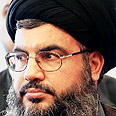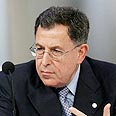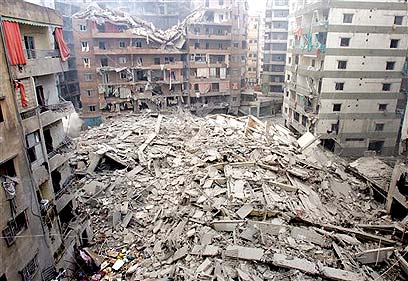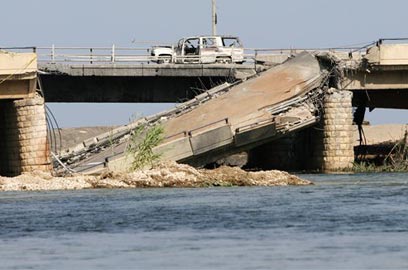

Hizbullah miscalculated the extent of Israel's reaction to the abduction of the two Israel Defense Forces soldiers, according to an article published Sunday in the Washington Post.
The article claims that in the events leading up to the war and during its infancy the organization made a series of miscalculations. Among these: Promises made by organization heads to Lebanese government officials that the conflict would be short lived and would end quickly and the failure to evacuate the civilian population of southern Beirut.
The article detailed how events unfolded, starting with the kidnapping of Israeli soldiers Ehud Goldwasser and Eldad Regev on July 12th. Shortly after their abduction Lebanese PM Fouad Siniora summoned Hussein Khalil, an aide to Hassan Nasrallah, to his Beirut office.
"What have you done?" asked a riled Siniora. Khalil tried to calm him, guaranteeing him that "it will calm down in 24-48 hours."
But Siniora was skeptical, he reminded Khalil of what was happening in Gaza ever since Palestinian gunmen abducted IDF soldier Cpl. Shalit; attacks on Gaza's infrastructure including a power station, roads and bridges. But Khalil calmly assured him that "Lebanon is not Gaza."
The reality, however, would prove to be different.

Aftermath of IDF attacks on southern Beirut (Photo: AP)
"They were prisoners of their assumptions," said Nizar Abdel-Kader, a retired Lebanese general, told the Washington Post. The outcome of the war highlighted both the strengths and weaknesses of Hizbullah.
The organization misjudged the Israeli response but thanks to its well prepared infrastructure – the result of years spent digging tunnels, upgrading and positioning weaponry and carrying out surveillance operations along the border - Hizbullah survived the war.
"We were prepared because we always knew that the day would come when we have to fight this war," Hussein Hajj Hassan, a Hezbullah member of parliament told the Post. "We also knew that God was with us. He was with us."
Hizbollah promises to defend Lebanon
The paper reported that early in June Hizbullah leader Nasrallah came to the Lebanese parliament in an attempt to convince them to refrain from disarming the organization – a demand brought on by United Nations Security Council Resolution 1559 from September 2004.
Nasrallah stated that it is best for his organization to stay armed so that they could help defend Lebanon in the case of a conflict with Israel. According to Nasrallah, leaving the organization as it is would help maintain the "balance of fear" between the two countries and provide support for the Lebanese army which cannot handle the Israeli army.

Bridge destroyed by IDF. Nasrallah spoke of need to kidnap soldiers (Photo: AP)
When legislators demanded explanations from Narallah in an additional session which took place on June 29th the Hizbullah leader said, "I can reach Haifa and beyond Haifa," Marwan Hamadeh, the telecommunications minister and a critic of Hizbollah told the Washington Post.
Israel would not risk a Hizbullah missile attack, Nasrallah added, which could strike sensitive facilities and heavily populated areas.
At the time, much of Nasrallah's words were hypothetical and parliament felt secure that Hizbullah would not ruin the Lebanese tourist season, one of the country's main sources of income.
"He said this summer would be a quiet summer," Hamadeh told the Post. "He said all the actions they would do would be reminders of their (Hizbollah's) existence."
"It didn't draw the attention of anyone at all," Said parliament member Boutros Harb, "he mentioned it like you'd write in the margins of a text."
According to former UNIFIL spokesman Timor Goksel Hizbullah "might have been surprised by the Israeli response, but they were prepared for it."
He told the Post that the weaponry used by the organization during the war was already deployed on the ground, ready for action. Almost three months later the war broke out. Hizbullah's timing still remains a mystery, according to Goskel.
"They don't attempt adventures. They're not adventurous types," he said, explaining that they take into account what any operation would mean for Shiites, what it would mean for the party, what it would mean for Lebanon and what it would mean for Syria.















